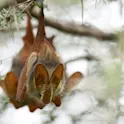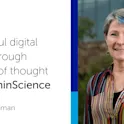1,071 news posts

Frontiers news
13 Dec 2022
Pathology and Oncology Research: a successful transition to open access
Frontiers’ Partner Focus Frontiers publishing partnerships was first established in 2019 and in 2020 one of the earliest society journals to join our community of partners was Pathology and Oncology Research, the journal of the Arányi Lajos Foundation for modern pathology. Previously publishing under a hybrid-subscription model with Springer Nature, the transition to gold open access marked a major step forward for POR and the beginning of an important new relationship for Frontiers. Two years on, we’ve been looking back on POR’s transition and talking to its editors-in-chief about their experience of moving to Frontiers and the journal’s progress and achievements since then. You can read and download the full case study here. POR-case-study-December-2022Download

Featured news
13 Dec 2022
The (un)fair allocation of scarce vaccines and how maths can provide a solution
By Prof Carlos Alós-Ferrer Prof Carlos Alós-Ferrer. Image: Nomis Foundation The Covid-19 global vaccine roll-out is considered one of the greatest achievements in modern medical history, saving hundreds of thousands of lives. However, it was marred by decisions that saw those most in need of a vaccine in some countries wait too long, while those perceived to be least at risk getting them first. Now, Prof Carlos Alós-Ferrer of the University of Zurich writes about how he and his colleagues’ latest research in Frontiers in Public Health shows that one maths procedure can ensure a fair distribution of scarce vaccines across the globe. Remember when Covid-19 vaccines first became available? After many months of lockdowns and increasing casualty rates, people across the planet were allowed to exhale a collective sigh of relief. However, as is always the case when new vaccines are developed, there were not enough doses for all who wanted them. Rationing had to be imposed. Unfortunately, the rationing procedures violated elementary ethical principles, which might have led to some elderly and at-risk patients being neglected while younger, healthier citizens were already vaccinated. How did it go wrong? Vaccine acquisition and allocation across the world was as centralized […]

Frontiers news
09 Dec 2022
2022: A year to remember
Author: Leticia Nani Silva As a young scientist, I ask myself daily, “What do you want to be remembered for?” Is it my career, my publications, my awards, or even all the conferences I attended? As a female scientist, I want to be remembered for making significant contributions to my field of work and for amplifying the voices of other female scientists to share their stories. Photo credit: Frontiers In 2019, before the world changed entirely, three other women and myself were enjoying the Swiss air from Frontiers’ Lausanne headquarters when we started discussing the importance of giving women in science more of a voice within their communities. As scientists ourselves, we felt it was our responsibility to create a space where women researchers would feel drawn to share their career progressions and achievements, as well as the obstacles and challenges they faced. We wanted to give them a platform where they would be remembered not only for their scientific breakthroughs, but even more so for their tenacity, passion, and dedication to uplifting the other women around them. It was at this moment that the Frontiers Women in Science blog was born. As the blog coordinator, I gathered a talented […]

Featured news
09 Dec 2022
Evolution of bat wings and calls through ‘foraging syndromes’ allows diversity to flourish
By Mischa Dijkstra, Frontiers science writer Egyptian slit-faced bats, Nycteris thebaica In a new study, scientists show that the wing shape and the echolocation frequency of bats are tightly linked across species. This pattern could only be identified because of the large dataset in the present study, which allowed the authors to look beyond the effect of bat family on these traits. The results mean that wing shape and echolocation frequency have jointly evolved in response to foraging ecology, yielding an optimal combination of traits or ‘foraging syndrome’ in each habitat. Bats are an evolutionary success story. With approximately 1,400 species living today, they thrive in every environment except the polar regions. They come in a remarkable range of sizes, from the golden-crowned flying fox with a mass of 1.2 kg and a wingspan of 171 cm, to Kitti’s hog-nosed ‘bumblebee’ bat with a mass of 2 g and a wingspan of 33 cm. The frequencies that bats emit during echolocation are also highly variable, ranging from 11 kHz to 212 kHz. But what has driven the evolution of this extraordinary diversity? “Here we show with that among bat species, there is a close correspondence between wing shape and the […]

Frontiers news
08 Dec 2022
Frontiers Publishing Partnerships 2022: the year in review
Frontiers Publishing Partnerships is ending 2022 with much to celebrate and we are looking forward to an exciting year of growth and development in 2023. Our partnerships team has been working with an expanding community of societies and institutions from across the world, including several landmark journals which launched with us in 2022. One of these is Aerospace Research Communications, the official journal of Zhejiang University Press (ZJUP), which publishes cutting-edge research in the field of aerospace science and engineering. As our first collaboration in China, the partnership has marked a major milestone for Frontiers and provides a strong foundation for the growth of our publishing partnerships program with key institutions in the country. This year has also seen the launch of the European Journal of Cultural Management and Policy (EJCMP), the journal of the European Network on Cultural Management and Policy. EJCMP is the first society journal in the humanities field to transition to Frontiers under the gold open access model and the partnership marks a significant step for both partners. In the biomedical sciences, we transitioned the British Journal of Biomedical Sciences (BJBS) from a hybrid model to full open access. The journal transferred from the publisher Taylor & […]

Frontiers news
08 Dec 2022
Frontiers welcomes new publishing partnership with the Society for Experimental Biology and Medicine
Gold open access publisher Frontiers is pleased to announce that the journal Experimental Biology and Medicine (EBM), currently published by SAGE, will be transferring to Frontiers. The transition is thanks to a newly signed agreement with the Society for Experimental Biology and Medicine (SEBM). The partnership, finalized in October 2022, represents a major step forward for open access publishing in the field of experimental biology and medicine. Previously published under a hybrid model, EBM will open for submissions on Frontiers’ fully open access platform in late 2023. The first papers are expected to be published in early 2024. The partnership is an important addition to Frontiers’ growing community of society partners in North America, which also includes the Canadian Society for Pharmaceutical Sciences, the Dystonia Medical Research Foundation, and the International Drug Abuse Research Society. Commenting on the agreement, EBM’s Editor-in-Chief Dr. Steven Goodman said: ‘Moving EBM to a fully open access model is a significant step that will enable us to better support our global community of researchers. We look forward to working with Frontiers to build on EBM’s long history of success.’ SEBM was founded in 1903 and is a not-for-profit society which promotes investigation in the biomedical […]

Climate action
08 Dec 2022
Flocking to fire: wildfires don’t deter Americans from moving to at-risk regions
by Angharad Brewer Gillham, Frontiers science writer Image/Shutterstock.com Scientists investigated whether environmental hazards put people off moving to regions at risk and found that heatwaves and hurricanes deter newcomers, but wildfires don’t. The climate crisis has caused humans to move both within their countries of origin and across borders. Although climate migration is often treated as a phenomenon of the ‘global south’, a team of scientists led by Mahalia Clark at the University of Vermont (UVM) turned the spotlight on the US. The US has experienced numerous destructive weather events recently, which have killed and injured many people and done billions of dollars of damage. But the team found that despite the death toll, more people are moving to areas in the United States that are at serious risk of wildfires. “Our original motivation was the increasing number of headlines each year about record breaking heat waves, hurricanes, and wildfires,” said Clark, a researcher at UVM’s Gund Institute for Environment. “I had been studying natural amenities — features of the climate and environment that are attractive to movers — but I began to wonder if the threat of these hazards might have a deterring effect on migration.” Read original article […]

Frontiers news
07 Dec 2022
Reflections on the 2022 Charleston Conference
The Charleston Conference is a landmark event in the scholarly publishing calendar and provides a vibrant and unique meeting point for librarians and publishers from across the USA and the world. The Frontiers team was delighted to be able to attend the 2022 conference in early November. Alongside Julia Kostova, Director of Publishing Development, our delegates included Tom Ciavarella, Head of Public Affairs and Advocacy for North America, representatives from our institutional partnerships teams, and other colleagues from our US office. We were delighted to be a diamond sponsor of this important event, and to take part in several sessions and panels. Frontiers hosted a panel on the much-discussed OSTP guidance on public access for federally funded research, bringing a US policy perspective to scholarly communications. The panel’s high-profile experts included Daniel Sepulveda, Senior Vice President at Platinum Advisors, and former advisor in the Obama, Clinton and Biden Administrations; Robert Kiley, Head of Strategy at Coalition S, and Danielle Cooper, Director for Libraries, Scholarly Communications, and Museums at Ithaca S+R. Frontiers’ Julia Kostova, who chaired the discussion, said: ‘This is an important moment for agencies beginning to plan implementation of the ‘Nelson Memo’ on open access publishing. As a gold […]

Featured news
07 Dec 2022
Could new cancer drugs come from potatoes and tomatoes?
by Angharad Brewer Gillham, Frontiers science writer Image/Shutterstock.com Polish scientists revealed the potential for new cancer drugs to be formulated from bioactive compounds found in plants from the genus Solanum, like potatoes and aubergines. Everyone knows someone who has had cancer. In 2020, around 19m new cases — and around 10m deaths — were registered worldwide. Treatments are improving all the time but can damage healthy cells or have severe side-effects which are hard on patients; in the search for new, more targeted cancer drugs, traditional medicine offers many possible candidates. A team of Polish scientists led by Magdalena Winkiel at Adam Mickiewicz University, publishing today in Frontiers in Pharmacology, reviewed the bioactive compounds called glycolalkaloids that are found in many vegetables that are household names, like potatoes and tomatoes, to demonstrate their potential to treat cancer. “Scientists around the world are still searching for the drugs which will be lethal to cancer cells but at the same time safe for healthy cells,” said Winkiel. “It is not easy despite the advances in medicine and powerful development of modern treatment techniques. That is why it might be worth going back to medicinal plants that were used years ago with success […]

Featured news
06 Dec 2022
10 Frontiers articles that caught the world’s attention in 2022
By Frontiers’ science writers Image: Shutterstock.com As part of Frontiers’ passion to make science available to all, we highlight just a small selection of the most fascinating research published with us each month to help inspire current and future researchers to achieve their research dreams. 2022 was no different, and saw many game-changing discoveries contribute to the world’s breadth of knowledge on topics ranging from the climate crisis to robotics, and exercise to the lives of our ancestors. So to round of the year, here are 10 Frontiers articles from this year that got the world’s top media talking. 1. This illusion, new to science, is strong enough to trick our reflexes Have a look at the image below. Do you perceive that the central black hole is expanding, as if you’re moving into a dark environment, or falling into a hole? If so, you’re not alone: a study published to Frontiers in Human Neuroscience showed that this ‘expanding hole’ illusion, which is new to science, is perceived by approximately 86% of people. The researchers don’t yet know why a minority seem unsusceptible to the ‘expanding hole’ illusion. Nor do they know whether other vertebrate species, or even nonvertebrate animals […]

Featured news
05 Dec 2022
Scientists find inorganic food additives might make babies more vulnerable to allergies
By Angharad Brewer Gillham, Frontiers science writer Image/Shutterstock.com Inorganic nanoparticles used to help process food may be crossing the placental barrier and getting into breastmilk, potentially damaging intestinal regulation and compromising babies’ oral tolerance, predisposing them to food allergies. Nanotechnologies have revolutionized food technology with changes to food production, manufacture, and processing that are intended to make our food safer and healthier. Phytosanitary products, processing aids, food additives, and surfaces that touch food in storage can all transfer nanoparticles that might be consumed by humans. In a review published in Frontiers in Allergy today, Mohammad Issa, at the Université Paris-Saclay, and colleagues pointed out that such a significant change to food production could have unforeseen health consequences. The team presented evidence that suggested that nanoparticles not only cross the placenta to reach developing fetuses but leave them at greater risk of potentially life-threatening food allergies. “Due to the immunotoxic and biocidal properties of nanoparticles, exposure may disrupt the host-intestinal microbiota’s beneficial exchanges and may interfere with intestinal barrier and gut-associated immune system development in fetus and neonate,” said Dr Karine Adel-Patient, corresponding author of the study. “This may be linked to the epidemic of immune-related disorders in children, such as […]

Featured news
02 Dec 2022
Open access publisher Frontiers strengthens its global public affairs team
Research publisher Frontiers appoints Dr Anke Beck and Ms Nancy (Yinan) Chen as heads of public affairs and advocacy for Europe and China respectively. They have been appointed to lead advocacy initiatives in support of Frontiers’ mission to make all science open. Europe and China are the unique hubs for research and high-potential innovations. The diverse nature of these research communities requires stronger links between academia and policy makers in line with regional or national smart specialization strategies. It also requires a deep understanding of the different stakeholders and their needs, as well as the willingness to engage and collaborate on all sides. Anke and Nancy’s deep knowledge of the challenges, as well as their combined twenty-two years’ industry experience, makes them perfectly suited to reinforce Frontiers’ community engagement. Photo credit: Frontiers Over the past ten years, Dr Anke Beck has been at the forefront of open access publishing. As a managing director at Walter de Gruyter, she was responsible for the portfolio growth in both traditional and open access publishing. To maintain a market-leading position in open access book publishing, Anke took the role of chief executive officer of IntechOpen, where she developed new institutional partnerships across academia. In 2018, she […]

Frontiers news
02 Dec 2022
Wendy Chapman – Successful digital health through diversity of thought
Author: Katharina Stock Professor Wendy Chapman is the Director of the Centre for Digital Transformation of Health at the University of Melbourne. The Centre focuses on the translation of digital health innovations into clinical practice, envisioning healthcare as a connected system. Recently, I had the opportunity to sit down with Wendy to discuss how she found her way into medical informatics, challenges people — especially women — face when pursuing a career in the field, and what motivates her to continue pushing for the digital transformation of healthcare despite its complex challenges.Professor Wendy Chapman currently serves as an Associate Editor for Frontiers in Digital Health. Photo credit: Francesco Vicenzi/Casamento Photography Your career in medical informatics started in a somewhat unexpected place. Can you talk a little bit about your passion for language and how this led to a career in natural language processing and medical informatics? “I started out at university with a major in elementary education and as part of that major we had to take a linguistics class, which was my favorite class. I went to Hong Kong for a year and a half and while I was there I learned to speak Cantonese. I had never spoken […]

Environment
02 Dec 2022
‘The Maya had, and continue to have, a creative impact on forest composition’ – Dr Anabel Ford
El Pilar, an ancient Maya site in Belize In our Frontier Scientists series, we talk to Dr Anabel Ford, a leading researcher on the ancient Maya, about her career and research interests. Ford recently published a study in Frontiers in Ecology and Evolution in which she stressed the importance of the traditional milpa land use system for the Maya civilization, not only in the Classical Period, but also today. Dr Anabel Ford is a US archeologist who specializes in the ancient Maya of Central America. In 1983, she led the team that encountered the ancient Maya city of El Pilar in Belize. Ford is a faculty member of the Institute of Social Behavioral and Economic Research at the University of California Santa Barbara and the director of the MesoAmerican Research Center at the same university. She is an expert on the still-flourishing forest gardens of the Maya region, built up over several millennia of traditional land use by the Maya people. Recently she published the study, “Scrutinizing the paleoecological record of the Maya forest” in Frontiers in Ecology and Evolution. In the paper, she focuses on the traditional milpa-forest garden cycle, where maize, beans, squashes, tomatoes, and many others are […]

Featured news
30 Nov 2022
Biomarker in urine could be the first to reveal early-stage Alzheimer’s disease
By Conn Hastings, science writer Image: BlurryMe/Shutterstock.com Alzheimer’s disease can remain undetected until it is too late to treat. Large-scale screening programs could help to detect early-stage disease, but current diagnostic methods are too cumbersome and expensive. A new study published to Frontiers is the first to identify formic acid as a sensitive urinary biomarker that can reveal early-stage Alzheimer’s disease, potentially paving the way for inexpensive and convenient disease screening. Could a simple urine test reveal if someone has early-stage Alzheimer’s disease and could this pave the way for large-scale screening programs? A new study in Frontiers in Aging Neuroscience certainly suggests so. The researchers tested a large group of patients with Alzheimer’s disease of different levels of severity and healthy controls with normal cognition to identify differences in urinary biomarkers. They found that urinary formic acid is a sensitive marker of subjective cognitive decline that may indicate the very early stages of Alzheimer’s disease. Current methods to diagnose Alzheimer’s are expensive, inconvenient, and unsuitable for routine screening. This means that most patients only receive a diagnosis when it is too late for effective treatment. However, a non-invasive, inexpensive, and convenient urine test for formic acid could be […]